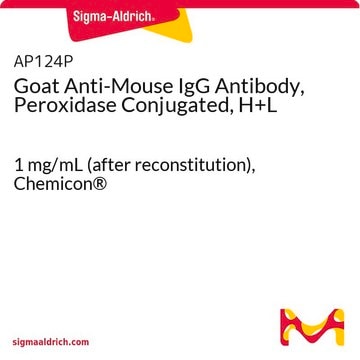MAK178
Enolase Activity Assay Kit
Sufficient for 100 Colorimetric or Fluorometric tests
Synonyme(s) :
Enolase Detection Kit
About This Item
Produits recommandés
Méthode de détection
colorimetric
fluorometric
Maladie(s) pertinente(s)
immunological diseases; cardiovascular diseases
Température de stockage
−20°C
Informations sur le gène
human ... EBI4(387712) , ENO1(2023) , ENO2(2026)
mouse ... EBI4(226265) , ENO1(13806) , ENO2(13807)
rat ... EBI4(292138) , ENO1(24333) , ENO2(24334)
Catégories apparentées
Description générale
Application
Adéquation
Principe
Composants de kit seuls
- Enolase Assay Buffer
- Peroxidase Substrate, in DMSO
- Enolase Substrate Mix
- Enolase Converter
- Enolase Developer
- Enolase Positive Control
- Hydrogen Peroxide Standard, 0.88 M
Mentions de danger
Conseils de prudence
Classification des risques
Aquatic Chronic 3
Code de la classe de stockage
10 - Combustible liquids
Classe de danger pour l'eau (WGK)
WGK 3
Certificats d'analyse (COA)
Recherchez un Certificats d'analyse (COA) en saisissant le numéro de lot du produit. Les numéros de lot figurent sur l'étiquette du produit après les mots "Lot" ou "Batch".
Déjà en possession de ce produit ?
Retrouvez la documentation relative aux produits que vous avez récemment achetés dans la Bibliothèque de documents.
Les clients ont également consulté
Notre équipe de scientifiques dispose d'une expérience dans tous les secteurs de la recherche, notamment en sciences de la vie, science des matériaux, synthèse chimique, chromatographie, analyse et dans de nombreux autres domaines..
Contacter notre Service technique










